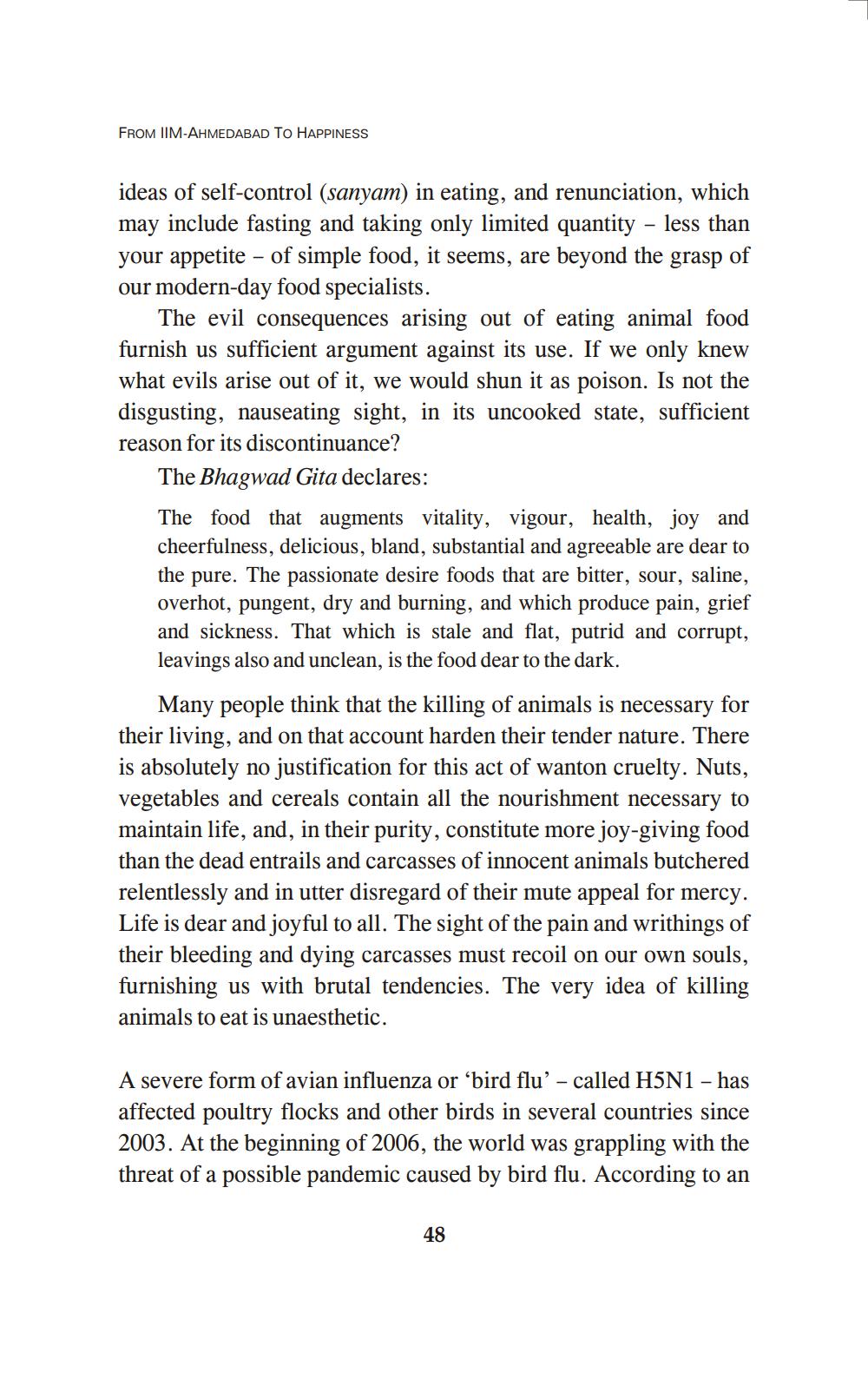________________
FROM IIM-AHMEDABAD TO HAPPINESS
ideas of self-control (sanyam) in eating, and renunciation, which may include fasting and taking only limited quantity - less than your appetite - of simple food, it seems, are beyond the grasp of our modern-day food specialists.
The evil consequences arising out of eating animal food furnish us sufficient argument against its use. If we only knew what evils arise out of it, we would shun it as poison. Is not the disgusting, nauseating sight, in its uncooked state, sufficient reason for its discontinuance?
The Bhagwad Gita declares:
The food that augments vitality, vigour, health, joy and cheerfulness, delicious, bland, substantial and agreeable are dear to the pure. The passionate desire foods that are bitter, sour, saline, overhot, pungent, dry and burning, and which produce pain, grief and sickness. That which is stale and flat, putrid and corrupt, leavings also and unclean, is the food dear to the dark.
Many people think that the killing of animals is necessary for their living, and on that account harden their tender nature. There is absolutely no justification for this act of wanton cruelty. Nuts, vegetables and cereals contain all the nourishment necessary to maintain life, and, in their purity, constitute more joy-giving food than the dead entrails and carcasses of innocent animals butchered relentlessly and in utter disregard of their mute appeal for mercy. Life is dear and joyful to all. The sight of the pain and writhings of their bleeding and dying carcasses must recoil on our own souls, furnishing us with brutal tendencies. The very idea of killing animals to eat is unaesthetic.
A severe form of avian influenza or 'bird flu' - called H5N1 - has affected poultry flocks and other birds in several countries since 2003. At the beginning of 2006, the world was grappling with the threat of a possible pandemic caused by bird flu. According to an
48




